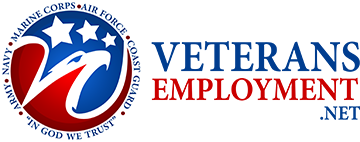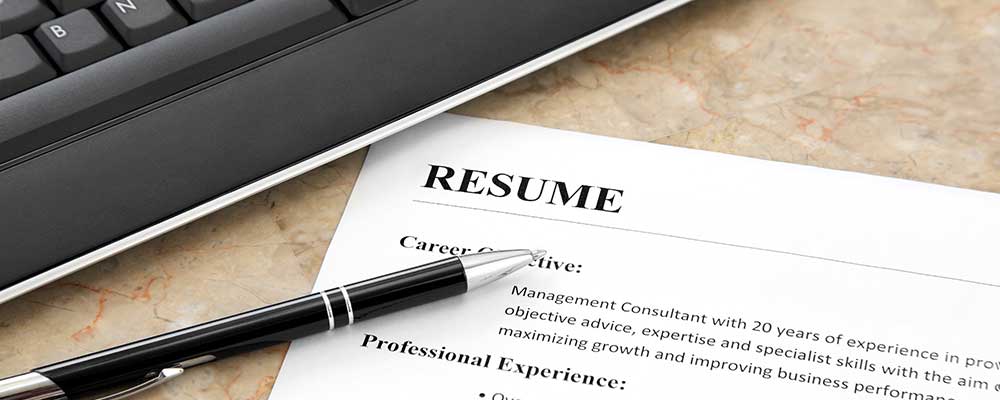How To Write A Great Resume
We want you to have a smooth transition from your military to civilian career. One of the first and vital steps in this career transition is in creating your resume.
And this is why we’re here – to give you the information you need to write a great resume and to support you as your veteran’s employment services expert. Because we communicate with corporate clients on a daily basis, we know what employers are looking for in candidate resumes.
We’ve put together our top resume writing tips that will help you convert your military experience, education, and skills to a civilian career.
Before we get into specifics, want to remind you of one key point about every single resume: you absolutely cannot have spelling or grammatical errors or have a disorganized and poorly formatted resume. It doesn’t matter how talented you are, if the hiring manager or human resources specialist struggles to read and understand your resume, it quickly goes to the bottom of the pile.
Follow our advice to create a great resume that stands out, gets you noticed, and hired.
Research The Civilian Job Requirements
It’s important that you do more than read the job description and title – you have to really understand what the employer is looking for. This means, reading between the lines and paying attention to mandatory skills and education, nice-to-have skills, and bonus criteria that can give you an edge.
- Pay attention to the language used in the job description. Is it very formal or more relaxed and friendly? This can tell you a lot about the company, the people you’ll be working with, and the type of person the company is looking for.
- Look for keywords and repeated emphasis on skills, education, etc. Does the job description use words like leadership, management, people person, responsive, time management, etc.? These are clue words that can tell you more about what the job is likely to entail.
- Is there an emphasis in the job description on education, experience, or both? This is important especially when you’re converting your military experience to civilian. Make sure you have a list of all of your military training, education, courses, workshops, etc., these can be useful when a job description puts a big emphasis on education.
Know Your Career Goals
Your resume is your marketing material, so you need to use it to clearly identify your career goals. It’s useful to include a top introductory section similar to this:
Career Goal: To use my 10 years of technical and design skills to create tangible advancements in end-user software. I’m keen to work in a team environment on software that can improve the lives of people and help them meet their own personal goals in health, fitness, and wellness.
This example career goal statement clearly communicates a few vital pieces of information: years of experience, core skill set, soft skills, and an alignment with company goals.
It’s important to remember that your career goal should be tailored to the job you’re applying for. Highlight your education, how your skills match those in the job description, and include keywords from the job description such as teamwork, health, wellness, software, etc.
Do not write a vague career goal that you use on every single resume.
Use Plain Language
Remember that most people are not up-to-date with the latest military language including job titles, job descriptions, and jargon. Your resume has to be easy-to-read and understand, so if it is cluttered with unfamiliar language, the human resources specialist will quickly ignore your resume.
We understand that it can be hard to explain your military experience and career to someone who has no military experience. It might sound simplistic but think about how you would explain your military job description to a 10-year old – you would use terms and language that communicate how you spend your day but leave out the nitty gritty details and confusing language.
There are some useful online tools that you can use to help translate your military skills to civilian requirements:
Remember Your Soft Skills
Don’t overlook your soft skills when creating your resume. This includes skills that you likely took for granted as just being part of the job:
- Teamwork
- Leadership
- Communication
- Attention-to-detail
- Flexible
- Organized
- Management
When reading the job description look for these keywords and make sure you emphasize these same words when creating the work experience section of your resume.
Highlight Your Military Accomplishments and Background
Your military background and accomplishments are extremely valuable. Don’t gloss over your military accomplishments and career. Many employers want to give jobs to veterans so it’s key that you showcase your military background.
However, remember to keep the language free of military jargon and descriptions that only make sense to those with military experience. Your military experience is an attribute so be clear about what you did, what you learned, and what you want to do with this experience.
Customize Your Resume For The Civilian Job
Yes, this does take more time, but it’s important that you customize your resume for the job you’re applying for. Even when applying for jobs in the same industry, each job will have slightly different job requirements.
It’s your responsibility to clearly explain how you meet the job requirements and why you’ll be an asset to the company. Remember the importance of looking for keywords and in clearly translating your military experience to civilian.
Make it easy for the employer to understand how and why you can help them solve their problems. This means you need to be clear, concise, and obvious. Tell the employer what you’ve done but don’t include every single job you’ve ever had – include only the relevant experience, skills, and education.
Key Resume Sections
Your resume needs to be easy to quickly scan – giving the person exactly what they want and expect. Make sure your resume includes these key sections:
- Contact Information: double-check your email address and phone number. You’d be surprised at how many people misspell their email address or make an error in their phone number.
- Career Goal: clearly state your career goal and include some key qualities such as years of experience, skills, and how you mesh with the company goals.
- Education: include relevant post-secondary education such as college degrees, post-secondary course work, military training, workshops, etc.
- Work Experience: customize this to the job you’re applying for. Emphasize the work experience that is relevant to the job. Include the job title, job description, and your key duties. This is your chance to highlight important soft skills.
- Volunteer/Professional Development/Organization Memberships: tailor this section so you can for example, highlight your membership in a professional organization or showcase your community volunteer work.
Veteran’s Employment Is Here To Help
We want to help you find your ideal employment opportunity.
Our focus is on finding employment for veterans – men and women like you who have served Americans and are now looking for new ways to contribute and make positive change.
We work with leading American corporations to give you the best employment opportunities possible. We’re excited about your future and we want you to feel the same.

